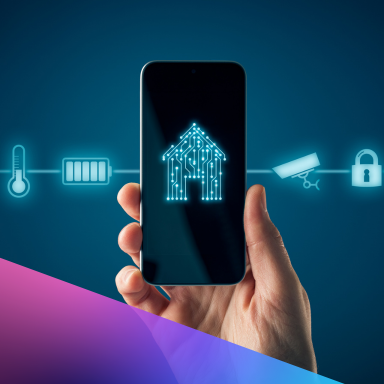Digital Transformation: Why is Essential for Cleaning Businesses

From Paper Checklists to AI-Powered Automation: The Evolution of Cleaning Businesses
For decades, cleaning companies have relied on manual processes—printed checklists, phone call bookings, and paper invoices. While these traditional methods worked, they often led to missed appointments, miscommunications, and unnecessary delays.
Fast forward to today, and the landscape has completely changed. Why? Because the demand for efficiency, transparency, and real-time operations has never been higher. From smart sensors that track cleaning needs to automated scheduling systems, the cleaning industry is experiencing a revolution.
So, how exactly is digital transformation reshaping cleaning businesses? And why is adopting technology no longer a luxury but a necessity?
Key Benefits of Digital Transformation for Cleaning Companies
🔹 Increased Efficiency – Automate scheduling, task assignment, and workforce management to eliminate human errors.
🔹 Enhanced Customer Experience – Real-time service tracking, digital invoicing, and online booking improve client satisfaction.
🔹 Cost Reduction – Digitizing operations reduces administrative overhead, lowers paper-based costs, and streamlines payroll.
🔹 Data-Driven Decision Making – Use cleaning business analytics to optimize staffing, supply usage, and service efficiency.
Example: A commercial cleaning company that implemented an automated scheduling system saw a 30% reduction in missed appointments and a 20% increase in customer retention, thanks to better communication and service reliability.
1. Automating Scheduling & Workforce Management
One of the biggest challenges for cleaning businesses is managing shifts, dispatching staff, and ensuring on-time service delivery. Traditionally, managers had to manually call employees, confirm availabilities, and schedule shifts. This is inefficient and leads to costly no-shows.
With AI-powered scheduling tools like Doinn, cleaning businesses can:
✅ Automate job assignments based on availability, location, and priority.
✅ Send real-time notifications to reduce miscommunication and last-minute cancellations.
✅ Track workforce performance to optimize operations and avoid scheduling conflicts.
💡 Example: A janitorial service that integrated Doinn’s smart workforce automation reduced scheduling conflicts by 40%, improving both staff efficiency and customer satisfaction.
2. Leveraging IoT and Smart Cleaning Technologies
The Internet of Things (IoT) is revolutionizing the way cleaning companies operate. By integrating smart sensors and automated equipment, businesses can track supply levels, optimize cleaning routines, and reduce waste.
✔ Use smart dispensers and inventory tracking to avoid stock shortages.
✔ Adopt sensor-based cleaning that triggers tasks based on real-time facility usage.
✔ Monitor equipment health with IoT-enabled vacuums, robotic cleaners, and predictive maintenance alerts.
Example: A hotel cleaning service using IoT sensors reduced supply overuse by 25%, significantly lowering costs and improving sustainability.
3. Enhancing Customer Experience with Digital Tools
Today’s clients expect seamless digital interactions from service providers. If your company still relies on phone bookings and paper invoices, you’re already falling behind.
🔹 Online Booking & Service Tracking – Platforms like BookingKoala allow customers to schedule cleanings and track real-time service status.
🔹 Automated Invoicing & Digital Payments – Simplifies transactions and reduces late payments.
🔹 AI-Powered Chatbots – Provides instant customer support, reducing response times and improving satisfaction.
💡 Example: A residential cleaning company that implemented an online booking system saw a 45% increase in new customers thanks to the improved convenience.
4. Data Analytics for Business Growth
With real-time analytics, cleaning businesses can track job performance, predict demand, and optimize resources.
✅ Monitor customer retention to refine marketing strategies.
✅ Use AI-powered insights to forecast peak service times and adjust pricing.
✅ Analyze workforce productivity to optimize staff allocation.
💡 Example: A facility cleaning company that leveraged data analytics improved efficiency by 35% by optimizing staff schedules during high-demand hours.
The Road to Digital Transformation: Steps for Cleaning Businesses
If your cleaning company is still operating manually, here’s how you can start your digital transformation journey:
📌 Assess Current Processes – Identify inefficiencies in scheduling, invoicing, and customer service.
📌 Implement Cloud-Based Solutions – Use CRM software and automated billing systems.
📌 Adopt IoT-Enabled Equipment – Invest in smart cleaning technology.
📌 Train Your Team – Ensure employees understand how to use digital tools effectively.
📌 Monitor & Optimize – Track KPIs to refine your strategy.transformation allows cleaning businesses to optimize operations, reduce costs, and exceed customer expectations in an increasingly tech-driven world.
The cleaning industry is evolving rapidly, and companies that embrace technology will dominate the market.
🚀 Why cleaning businesses should prioritize digital transformation:
✔ Streamlined Operations – Automation reduces errors and inefficiencies.
✔ Higher Customer Satisfaction – Real-time updates improve service quality.
✔ Cost Savings – Smart scheduling and IoT reduce unnecessary expenses.
Are you ready to future-proof your cleaning business? Let’s Talk!









